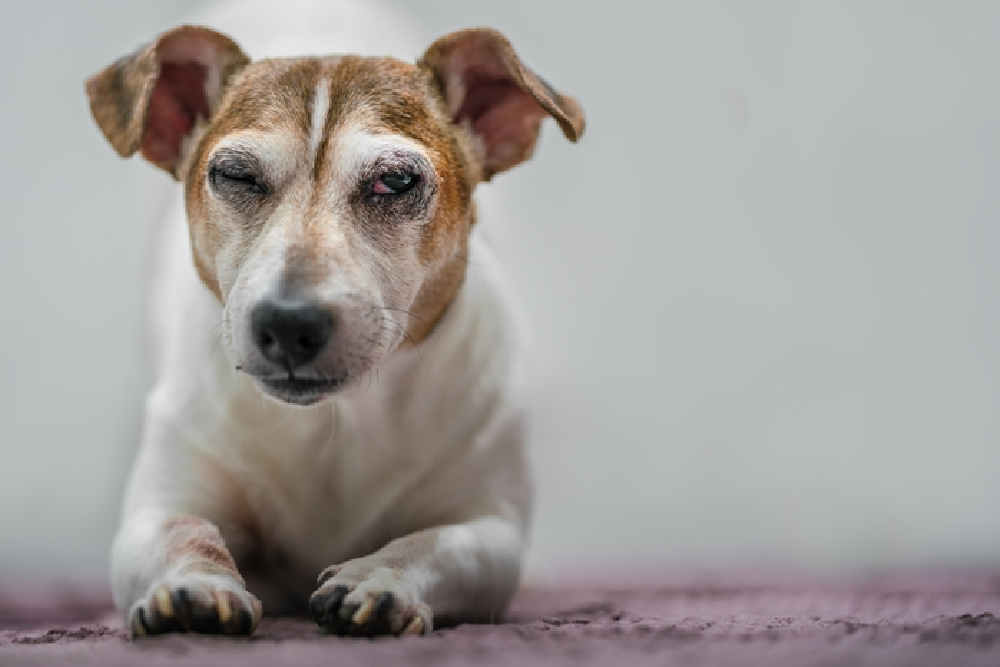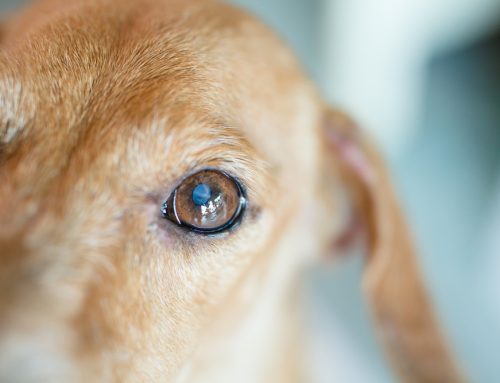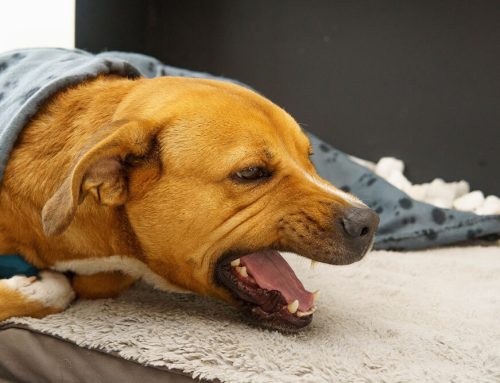As our dogs grow older, their needs evolve—sometimes slowly, and sometimes suddenly. From changes in energy levels to chronic health conditions, senior dogs require tailored care to maintain comfort, mobility, and happiness. At Boca Midtowne Animal Hospital in Boca Raton, FL, we specialize in providing compassionate, proactive veterinary care for aging pets. We’re proud to be AAHA-accredited and Fear Free Certified—meaning your dog’s comfort and emotional well-being are just as important to us as their medical health.
In this guide, we’ll cover the most common conditions in senior dogs, how to recognize them early, and how you can work with your veterinary team to give your pet a longer, healthier life.
Schedule a senior pet exam at Boca Midtowne Animal Hospital
Understanding Osteoarthritis and Joint Pain in Senior Dogs
What Is Osteoarthritis?
Osteoarthritis is one of the most common conditions affecting aging dogs. It occurs when cartilage in the joints wears down over time, leading to inflammation, stiffness, and discomfort. This condition tends to affect large breeds, overweight dogs, and highly active pets as they age.
Symptoms to Watch For
- Stiffness, especially after sleeping
- Limping or favoring one leg
- Difficulty jumping onto furniture or into the car
- Slower walks or hesitance to play
- Swollen or tender joints
Treatment & Management
At Boca Midtowne Animal Hospital, we tailor osteoarthritis care to your pet’s needs. Management options may include:
- Weight loss plans to reduce joint stress
- Joint supplements (glucosamine, chondroitin, omega-3s)
- Laser therapy for inflammation
- NSAIDs and other pain relief medications
- Low-impact exercise like swimming or short walks
Explore low-impact exercise options
Addressing Cognitive Dysfunction Syndrome (Canine Dementia)
What Is It?
Cognitive Dysfunction Syndrome (CDS) in dogs is similar to Alzheimer’s in humans. As brain function deteriorates, pets may show signs of confusion, memory loss, and changes in personality or routines.
Common Symptoms
- Getting “stuck” in corners or behind furniture
- Increased pacing or night-time restlessness
- House soiling in previously trained dogs
- Decreased interaction with family members
- New fears or anxiety
How We Can Help
Treatment options focus on slowing disease progression and improving quality of life:
- Prescription diets and supplements with antioxidants and omega-3s
- Enrichment toys and scent work to keep the brain active
- Maintaining structured daily routines
- Medications like selegiline (Anipryl) to support brain chemistry
Learn more about cognitive dysfunction
Managing Hypothyroidism in Senior Dogs
What Is Hypothyroidism?
Hypothyroidism is a hormonal condition in which the thyroid gland fails to produce enough hormones to regulate metabolism. It’s particularly common in middle-aged and older dogs.
Signs of Hypothyroidism
- Lethargy or disinterest in activity
- Weight gain without dietary changes
- Hair thinning, dry coat, or flaky skin
- Cold intolerance
Treatment
The good news is that hypothyroidism is manageable:
- Daily thyroid hormone replacement (levothyroxine)
- Bloodwork every 6–12 months to monitor levels
- Supportive care through nutrition and activity planning
Diabetes in Senior Dogs

Overview
Just like in people, diabetes in dogs is a chronic disease that affects blood sugar regulation. Senior and overweight dogs are most at risk.
What to Watch For
- Excessive thirst and urination
- Weight loss despite a good appetite
- Frequent urinary tract infections
- Cloudy eyes or vision loss (cataracts)
Management Strategies
Diabetes is manageable with the right care:
- Insulin injections (usually twice a day)
- Consistent feeding schedules and measured portions
- A high-fiber, low-carbohydrate diet
- Routine check-ins for blood glucose monitoring and weight changes
Understanding Cancer in Older Dogs
Common Types
- Lymphoma: Often presents with enlarged lymph nodes
- Mast cell tumors: Can appear as skin lumps
- Hemangiosarcoma: Highly aggressive, internal bleeding risk
- Osteosarcoma: Bone cancer, often in large or giant breeds
Warning Signs
- New or changing lumps
- Unexplained weight loss or appetite changes
- Weakness or limping
- Difficulty breathing
Treatment Options
We’ll discuss all treatment paths with you:
- Surgery to remove tumors
- Chemotherapy or radiation (when appropriate)
- Pain management and palliative care for comfort
- Frequent exams to detect recurrence or new issues
Learn about cancer types in pets
Preventive Care for Senior Dogs
Regular Wellness Exams
Routine care is your best tool for catching problems early:
- Biannual exams to track weight, heart, and mobility changes
- Bloodwork and urinalysis to check kidney, liver, and thyroid function
- Dental exams and cleanings to prevent oral pain and infection
Nutritional Support & Supplements
Nutrition plays a key role in aging:
- Diets enriched with omega-3s for brain and joint support
- Antioxidants to protect cognitive function
- VOHC-approved dental chews to support oral health
- Weight management plans to prevent stress on joints and organs
See senior supplement and nutrition recommendations
The Boca Midtowne Difference: Compassionate Care for Life
At Boca Midtowne Animal Hospital, we believe aging doesn’t have to mean suffering. Our Fear Free and AAHA-accredited team is trained to make every visit easier on your pet—and more informative and supportive for you.
If you’re noticing signs of aging in your dog, even subtle ones, we’re here to help you navigate it with personalized care and trusted guidance.
Book your senior pet exam today and let’s help your best friend thrive in their golden years.








Leave A Comment